Tag: vet nurse
-

Don’t Sell Yourself Short: Top Ways Your...
Continue Reading- Career tip
Don’t Sell Yourself Short: Top Ways Your Veterinary Skills Apply to Other Jobs
“Well, I was just a small animal vet? Why would they hire me?” This may come as a surprise to you, but simply having worked in private practice and having a DVM provides you with a wealth of abilities- these are aptly named transferrable skills.
Posted: 18/03/2024
Read Time/Watch Time
5 minutes
Who should read this?
Veterinarians, vet nurses, vet techs, employers.
Author(s)
Melanie Barham
Region
Global content
Don’t sell yourself short:
Top ways your veterinary skills apply to other job“Well, I was just a small animal vet? Why would they hire me?”
This may come as a surprise to you, but simply having worked in private practice and having a qualification in the veterinary field provides you with a wealth of abilities- these are aptly named transferrable skills. Thinking of these skills in advance allows you to be perfectly poised to be in just the right place at just the right time.
If you’re looking at job postings, think of the skills you acquired while in your other jobs throughout your career, volunteering, or other roles you might have filled in your community. What situations can you think of where you demonstrated the skills listed? Sometimes it’s a useful exercise to look at job postings and think of where your skills would fit, even if the job isn’t one you’d apply to.
Here’s a light look at a few you might not have thought of.
1.Complex problem solving: Those working in the veterinary industry are uniquely qualified to look at multi-faceted problems, and solve them. Generally used to working with teams, rarely in solitude, we are great at satisfying multiple needs at once with one clinical solution.
2. Communications skills: If you’ve ever talked an intense dressage rider off a ledge about her horse’s lameness, or worked with a multi-generational farm family with different ideas on herd health strategies, or dealt with a very emotional euthanasia with multiple family members, you’ve got communication skills and experience with multiple stakeholders.
3. Compassion, empathy: Clinical practitioners see people at their most vulnerable, at their very worst, and we help them and their pets through whatever ordeal is presented. We see them with their pyjamas on, their noses running, ugly crying, and we see pets at their most stressed out times; when they are sick. We can easily place ourselves in their headspace, and we can also express empathy.
4. Small business world knowledge: Most of the world’s businesses are small businesses. Working in a veterinary clinic in private practice is almost always an excellent example of small business across many geographic areas and niches. If you got to know anything about the culture, the needs or the financial/logistic ideas of a vet clinic, you have small business knowledge. And here’s a secret: most large businesses started as small businesses, and many are small businesses nested in a bigger business.
5. Relatability to other professionals: Dentists, lawyers, engineers, human doctors, veterinarians. We’re all professionals. We take oaths, pay licensing dues, write lengthy exams, and we struggle in similar ways.
6. Ability to understand and meet the needs of a wide range of stakeholders: In private practice, if there’s one thing we know as veterinarians, it is that it takes all kinds of people to make up a client base. Every time you step out of the car or into the exam room, the person on the other side of the table or the barn door will require something different of you. Veterinarians are like chameleons, but way better! You understand what the client needs, how to talk to them, get to the bottom of their issue, and get a task accomplished to help their animal.
7. Advanced knowledge of biological systems: Don’t underestimate the excellent knowledge base you received in veterinary college. Basically, 4 years of comparative biology + clinical skills wrapped up in 3 letters: vet. Every “ology” you took added to your knowledge. You didn’t sweat through your shirt in bell ringers for nothing! This knowledge base transfers to a wide variety of professions with ease. Your undergraduate work prior to veterinary college may also be applicable.
8. One Health philosophy: The term One Health has become a big buzz word of late, and for good reason. Understanding the connection between human health, animal health, and environmental health is fundamental to veterinary medicine. While this might have been a revolution to our human med counterparts, veterinarians were doing one health before we had a term for it.
9. Organizational leadership skills: When you are a veterinarian, even the lowliest intern in the largest clinic, you are a big-L leader in your team. You likely understand your impact in the workplace, how to carry yourself. If you know how to improve morale in your team, how to build trust with the mean team member, how to kindly hold the staff accountable, how to mentor gently, don’t be afraid to share these skills, particularly with examples (e.g., supervised externship students, performed staff reviews).
10. Ability to handle high pressure situations: Can you triage? Can you organize your team to get everything accomplished when 3 emergencies bust through the door? Can you work under pressure and keep creatures alive, looking competent with a poker face that would put Vegas gamblers to shame?
Although this article is pretty light in nature, it seems clear (since all of our interviewees have mentioned it), that anyone looking to change career paths should look to their previous experiences, and think how they would apply to possible opportunities.
Be honest, but don’t sell yourself short either. It’s up to you to determine where you fit best, and it’s also up to you to help your potential employer see why you might be indispensable.

Curious to know More?
Subscribe to our newsletter and never miss our free events, resources, and tips!
-

Was London Vet Show Your Career Development...
Continue ReadingRead Time/Watch Time
5 minutes
Who should read this?
Veterinarians, vet nurses, vet techs, employers.
Author(s)
Adrian Nelson-Pratt
Region
Global content
Was London Vet Show your career development springboard?
As the dust settles on another London Vet Show, did you make the most of it for career development purposes? Or was it a recruitment opportunity for you instead?
I’ve been going to LVS since the first event in 2009. In fact, I remember clearly arguing with the organisers about whether another show was needed, whether London was a good venue and whether delegates will travel. At the time I was Vet Affairs Manager for Hill’s Pet Nutrition, had a budget to manage and I wasn’t convinced. I’m definitely convinced now!
The 2023 edition definitely fulfilled the brief. We’re clearly over the post covid blues and into new territory with the scale of the show. Over twenty streams of CPD to dive into, hundreds of exhibitors and thousands of delegates. It was the busiest I’ve ever seen it and I think there was a real buzz about the place that sends a message – we may have been in the doldrums for a while and whilst we still have problems to solve in the profession, there’s an energy and engagement I’ve not seen in years. I think that leads to a healthy situation for those in the career development space.
Several observations lead me to that conclusion, aside from the obvious delegate throng. Firstly, the number of exhibitors was huge and it wasn’t just the usual companies. There were new entrants galore from across the globe. New products, technologies and services were everywhere, suggesting innovators and suppliers have confidence in the veterinary sector, investing in stands, promotions and giveaways.
Secondly, the scale of the investments and efforts to engage with delegates. Did you see the size of the sweet dispenser stand, the circus stand or the proliferation of sponsorship? When companies are working that hard to engage with delegates, you know that you’re a valuable commodity, your influence carries weight and that having you onboard is critical in a highly competitive market.
Finally, the breadth of content in the lecture streams. It’s expected that the RVC will deliver awesome clinical content, but to have multiple species, referral, career development, business, innovation and BVA Congress streams as well, speaks to the nature of a modern veterinary career. There’s no such thing as ‘just’ a vet or vet nurse anymore.
Given all the action, did you take advantage of the show as a career development or recruitment opportunity? If not, don’t worry, VSGD has you covered. We know you had a fab show, were super busy and perhaps didn’t get time to visit the VSGD Basecamp. We also know that a fair number of you won’t have made the London pilgrimage.
So it’s only fair we offer you the same career development downloads we offered the folks that attended. We’ve taken some of our most popular downloads and turned them into resources just for you. Each is intended to cover one element of veterinary recruitment or career development, whether you’re a candidate or a recruiter. Click this link to download them now.
The Ultimate Guide to Getting Your Career Unstuck
We’ve taken a coaching approach and provided you with a mini workbook. By posing you questions, giving you space to doodle and then helping shape your answers through reflective exercises, the workbook is designed to get you thinking and create some action. It’s a great starting point and perhaps a first step towards our Group Career Coaching or Personal Coaching Programs, which you can check out on our website.
The Ultimate Guide to DIY Headshots
Your photo is the first thing people see with your online presence. Whether it’s for Linkedin, social media or as an avatar for an application, it’s critical to make a great first impression. If you missed the chance to get a photo at the VSGD Basecamp during London Vet Show, then our guide gives you hints and tips that are simple to follow at home. All you need is a smartphone and a little time to follow the guide. Get snapping!
The New Grad’s Guide to Finding Your Ideal Workplace
When you’re a new grad, asking the question about how your ideal workplace looks can be difficult, especially if you’re younger with limited work experiences. It can be difficult to identify what’s important, so this guide contains prompts and questions that will help you find insights from previous workplaces, school and experiences and draw insights from your past. We’ve included green and red flags too – markers of things you want or don’t want in that first role.
The Ultimate Guide to Finding Your Ideal Workplace
When you’re in career development mode, one of the key questions is what your ideal workplace looks like. It can be difficult to identify what’s important, so this guide contains prompts and questions that will help you think back to previous workplaces and experiences and draw insights from your past.
The Smart Employer’s Guide to Making Job Ads Easy
We absolutely understand that writing a job advert can be daunting and time consuming. Hurdles such as finding the right way to show off your clinic’s key features, being camera shy or feeling uninspired can get in your way. And how do you achieve a standout advert amongst the masses? Our guide gives you a framework to use and plenty of hints and tips to ease the process.
And if you’re still struggling, why not check out the VSGD Careers advertising platform? It brings web and social media together, adds unique live events and our team of copywriters to help you find your voice and write a breakout recruitment campaign.
Download the free e-guides for career development and veterinary recruitment NOW!
That’s London Vet Show wrapped for the year and hopefully your networking, contacts and follow up list will bear fruit in whatever step you take next in your career. We’re here to help throughout your career journey so if you need anything, drop us a line here. Make sure you ask the community in the Facebook Group and you never know where your vet passport might take you next.



Curious to know More?
Subscribe to our newsletter and never miss our free events, resources, and tips!
-

An Introvert’s Guide to Attending an In-Person...
Continue Reading- Career tip
An Introvert’s Guide to Attending an In-Person Conference
So you are going to attend an in-person conference. Your excitement builds until you remember—you're an introvert. Mingling with strangers. Attending countless lectures. Engaging in small talk. These make you reconsider your decision already. But fret not, my introverted friend. You can reap the rewards of a conference without burning yourself out.
Posted: 31/10/2023
Read Time/Watch Time
5 minutes hot tip at 2mins
Who should read this?
Veterinarians, vet nurses, vet techs, employers.
Author(s)
Sandra Milburn
Region
Global content
An Introvert's Guide to Attending an In-Person Conference
Maximise Opportunities Without Draining Your BatteriesSo you are going to attend an in-person conference. Your excitement builds until you remember—you’re an introvert.
Mingling with strangers. Attending countless lectures. Engaging in small talk. These make you reconsider your decision already. But fret not, my introverted friend. You can reap the rewards of a conference without burning yourself out.
Here’s how:
1. Choose Intentionally
You don’t have to attend every lecture, panel, and networking session on the conference schedule. Be strategic. Research the events that align with your goals and interests. That way, you make the most of your time without overexerting yourself. And yes, it is ok to allocate some ‘free time’.
2. Pre-game the Game
Before stepping into the conference hall, engage in some online stalking—uh, I mean, research. Check out the speakers, attendees, or companies that interest you. When you have a game plan, approaching people becomes less overwhelming. It’s like going to a potluck but knowing which dishes you want to try.
3. Create a Social Buffer Zone
Let’s be honest; even the idea of socialising can be exhausting. Consider bringing along a more extroverted friend or colleague who is happy to take the lead in conversations. They’re the icebreaker ship, and you’re comfortably cruising in their wake.
4. Master the Art of Small Talk
Sure, small talk can be challenging and uncomfortable. But think of it as the warm-up before your workout routine; it gets the juices flowing. You can move from talking about the weather to discussing your favorite panel. This opens the door for more meaningful conversations. Stay curious – I am often amazed at how much I can learn and pick up during these initial conversations.
5. Recharge with Purpose
Have intentional ‘decompression time’. Find a quiet corner or an outdoor spot to catch your breath and thoughts. Is there a space that’s designed to help you recharge? More conferences are catching on to this. Go check out the Wellbeing Room program at the London Vet Show.
Use this quiet time to jot down key takeaways or even breathe or meditate for a few minutes.
6. Follow-Up Smartly
The conference is done and dusted, you collected an assortment of business cards, and now you’re home. The final step is to follow up. Since introverts often excel in one-on-one settings, consider setting up virtual coffee dates or sending personalised emails. You’ve already made the first impression; now it’s time to solidify the connection.
The Takeaway
Conferences don’t have to be the bane of an introvert’s existence. They can be a great opportunity to grow, learn, and connect or re-connect- both with other people, but also with our purpose, values, and vision.
With some prep work, strategic choices, and scheduled downtime, you can navigate the conference seas without feeling like you’re drowning. Remember, it’s all about quality, not quantity. Now, power up your social batteries and make the conference world your oyster!
Curious to know More?
Subscribe to our newsletter and never miss our free events, resources, and tips!
-

Networking For People Who Hate Networking
Continue ReadingRead Time/Watch Time
5 minutes Top 5 list 1/2 way down.
Who should read this?
Veterinarians, vet nurses, vet techs, employers.
Author(s)
Melanie Barham
Region
Global content
Networking for People who Hate Networking
If you don’t enjoy networking, you’re not alone! 40% of people on a recent LinkedIn poll said they do not enjoy networking, even though 90% recognized it as “critical”!
As a veterinary professional, you might also recognize how critical networking is to your success, especially as we are in a small field. Most of the people we interview for our monthly career Q and As have leveraged their connections to land their jobs, or make career transitions, or even create jobs where there were none! (Check out the replays here)
Networking is critical as well if you’re a business owner, side hustle owner, or if you’re looking to break into speaking, consulting, or freelancing of any kind. And how many people have been hired following a great conversation at an event?
So, we’ve established that networking is important… how can you make it less cringey and anxiety-inducing?
Here’s our top tips to get comfortable with networking:
- Embrace the awkward
When I learned how to become better at public speaking, I learned that it was always going to feel a little awkward for me, no matter how many stages I crossed or how many events I facilitated. Now I know that feeling of anxiety and how it will play out, and how I’ve survived it and thrived despite it. Let’s consider that those feelings of interacting in unknown situations are normal, but just like learning a new veterinary procedure, we get less nervous with time, and we learn to cope with them. I take some deep breaths if I’m feeling a bit keyed up, and assume a power pose (cheesy but it works).
2. Have a prop
I watched my young children do this as they learned to enter new situations. They found it easier when they brought something with them as a conversation starter. For little kids, it’s a stuffy to talk about, or an interesting rock. As adults, it can be a drink (“Have you tried the signature cocktail at the event?”), or even a statement piece of clothing that someone may comment on. Even having a business card can be helpful after starting the conversation.
3. Get some small talk questions prepped
I remember back in the stone age when I started dating, and you had to call on a landline. You had to speak to the boy’s parents and then make conversation awkwardly on the phone. My uber organized friend gave me a good tip: have a little cheat sheet of “nice parent questions” and “questions for the boy you are dating” questions banked to whip out should things get dull. Luckily, there was no video calling, so you could definitely flip through your notebook to consult questions. I’m not even ashamed to admit I’ve used this tip. “So what was your favorite lecture today?” at a conference, or “tell me about your family,” or “what’s new in your area? What are you excited about?” Have a couple on hand, or consult when you take a bathroom break.
4. Be curious, not desperate
I always advise job seekers to simply approach people with curiosity when they network, as opposed to viewing the interaction as a transactional one where the end result is finding out if the person has a job you can apply to. I prefer to advise that we approach with open ended questions, like a dermatology or behaviour consult- “Tell me about how you got to your current position?” “What do you like the best about your role?” Most people will happily answer questions about themselves, especially if you seem interested.
5. Lend value
If you have an idea or thing you think they might benefit from, let them know. Maybe a book, movie, process etc. “You know, you mentioned that you love Brené Brown as an author. I wonder, have you read any …”
6. Segue into topics where appropriate
If you have a service or idea that you could offer or help solve for the person, it’s totally great to either gently discuss it at the time, or grab their card to follow up later. “So neat that you’re thinking about bringing in speakers to your practice. I love speaking. What topics are you thinking of this year?” Or “Wow, that sounds really cool; love to see people thinking like you are. Can I grab your card? I’d love to stay in touch.” Then follow up with a nice email offering a further chat and some of your ideas or services if they are interested.
Next conference or networking event, please make great use of your time, and remember that almost everyone there is as awkward feeling as you!
If you still feel awkward or unsure about networking, or leveraging yourself into a new area, this is 100% an area coaching is helpful. Check out our coaching services here or drop us a line.

Curious to know More?
Subscribe to our newsletter and never miss our free events, resources, and tips!
-

How To Believe In That Little Idea...
Continue ReadingRead Time/Watch Time
5 minutes
Who should read this?
Veterinarians, vet nurses, vet techs, employers.
Author(s)
Melanie Barham
Region
Global content
How to believe in that "little" idea you have
Will you believe in yourself? Will you say your idea out loud?
When I started writing about non-clinical careers in vet med, it was an idea I kept quiet in my head for a LONG time. To be honest, I was so shy about the idea, about standing out or being a tall poppy that for a long time I just researched it, getting deep into articles about how to build a website and blog. Imagine if I had never done anything? I’d have missed out on a lot of cool things.
I see this time and time again, where people in our profession have a super idea they are afraid to say out loud, let alone bring it to reality. Not even letting that idea ever be said aloud.
Down with that, friends.
What a shame it would be to get to the end of your life, career, or year and have never ever taken a chance. What waste os exceptional brain power- yours!
Since the days when I couldn’t even say that I wanted to share stories of non-clinical careers, I’ve gained a lot of confidence, a global community of colleagues, and so so much.
I LOVE cheerleading people to bring their ideas to light; it brings me so much joy and energy, and I love hearing how people have summoned their courage and done something amazing with their idea. Most of them, like me, have watched that tiny bit of courage grow into new avenues and opportunities they didn’t even know existed.
As a recovering “hide your light under a bush” person who almost didn’t get up the courage to write that first blog, here’s a few top tips I can share if you’re feeling the same way.
- Write your idea down
- Share your idea with people who deserve to hear it
- Take 1 small first step, and then another
- Remind yourself of other times you’ve been brave and it’s been ok
- Write out the worst case scenario
- Watch Ted Lasso (not joking, I love this show)
If you’re looking for support as a leader or an individual, check out group career coaching in the UK and North America. We’ve helped people like Emily Singler take her big idea from dream to reality. It makes change possible. And we’ve got 10 cohorts of success to show it!

Curious to know More?
Subscribe to our newsletter and never miss our free events, resources, and tips!
-
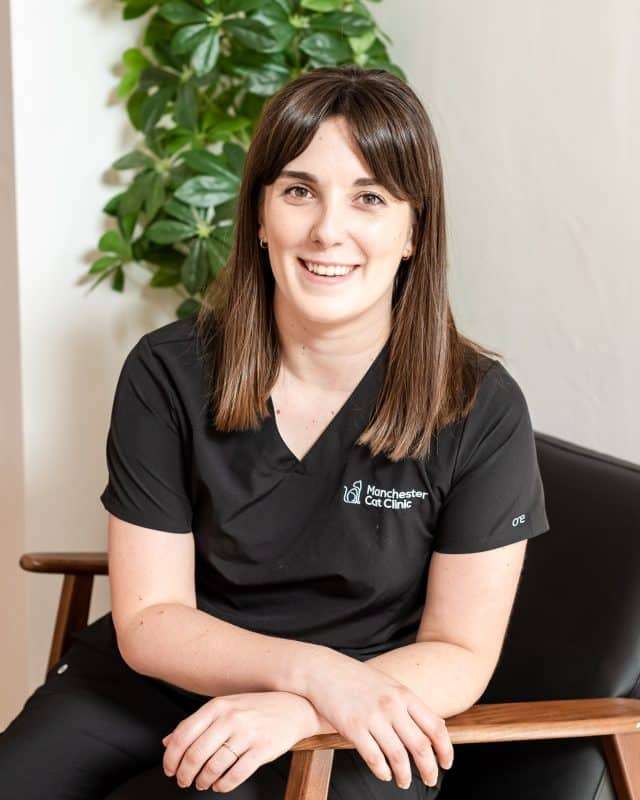
Ellie Lee BVSc MRCVS – Director, Manchester...
Continue ReadingSalary
We're not currently paying ourselves a full salary but once the finances are more stable we'll be on £50k each, increasing that as the practice grows
Travel
None
Values
Going the extra mile for clients & patients Being an empathetic employer
Region
Manchester but you can open your own practice anywhere!
Essential Skills
Confidence in the clinical side of the job Good interpersonal skills
Ellie Lee BVSc MRCVS
Check out our Career Q & A questions below to take a deep dive into this career path. If you’re interested in this type of career but unsure how to take the next step, click below to learn more about our services designed to support you.
My first job was at Vale Vets in Kidderminster, an independent small animal only practice in the West Midlands. I worked there for two years and feel very lucky to have started my career in such a lovely, supportive practice. I learned so much from some amazing vets and nurses and at the time we did our own out-of-hours which, although I didn’t love it at the time, taught me a lot and really helped my confidence. I then locumed in the UK for a few months before moving to Wellington, New Zealand to work at the SPCA for a few months, followed by some travelling, then returning to the UK as a locum based in Manchester.
My husband and I had been locuming in the Manchester area for a couple of years and felt that we would never really be ready to settle down into a permanent job again unless someone opened a cat-only practice in Manchester. We’d sort of joked about doing it ourselves but had never really been serious about it until November 2021 when I was in a pub in Gloucester with some other BSAVA volunteers and the subject of opening a practice came up. I chair BSAVA North West Regional Committee and sit on Council, so I’d travelled down to BSAVA HQ after work ahead of a Council meeting the next day. The vets I was speaking to were so encouraging and supportive of the concept of me opening a practice that it went from being a bit of a joke to a serious idea and I went home the next day wanting to seriously look into it. We booked onto Onswitch’s Open Your Own Practice course and one thing led to another and now we’re practice owners!
We had to make a business plan to get loans for equipment and premises renovations (we used a company called Vector Finance who were fantastic). We were very lucky that there was a veterinary surgery which had closed in 2020 very close to where we live – it had been a vets since 1948, sold to a corporate in 2018 but the previous practice owner retired and the practice closed due to staffing issues and Covid. The corporate had been paying rent on an empty building for a few years by the time we came along and were very keen to break their lease. Our landlord is a retired vet who was very happy for us to take over.
I love the feedback from staff and clients about how nice the practice is. Multiple times a day clients will tell me that they’ve never been to a vets like ours and that both them and their cats are so much more comfortable here. We really do our best to go the extra mile and I think the way we’ve renovated the practice and made it much less clinical and more friendly really makes a big difference. We’ve also been very lucky to have recruited an absolutely brilliant group of people who are a pleasure to work with
I’d say my day is pretty typical for a small animal vet except I only see cats, which is such a treat. I get a lot less scratches and bruises than I used to and the practice is much quieter and calmer than anywhere I’ve ever worked.
The management side has been a big learning curve and the admin burden has been absolutely huge but we’re getting into the swing of things now and have been able to delegate a lot of things to the rest of the team. We’ve just recruited for another vet and RVN as we’ve been so busy that we’ve needed to grow really quickly. My husband and I have been working 50-60 hours a week since we opened but we should actually be able to have a day off once the new vet starts which we’re very excited about.
Someone who doesn’t mind a big admin burden and is very organised – there is just so much to think about and do on top of all the clinical work. We expected to start off fairly quiet but we were pretty much fully booked from the get go, and by all accounts that’s not unusual, a lot of other startups have also been doing really well.
It also really helps to be a people person, not only for managing the team but also clients really like to see a vet at the face of an independent practice and really appreciate getting to know you. We get a lot of comments about how much they want to get to know a regular vet and see a familiar face, and our social media posts get a lot more engagement if they have our faces on it. It can feel a bit weird to put yourself out there (especially after we’d been fairly anonymous locums for a few years) but clients really appreciate it.
We didn’t have any money! We’d got married the year before and bought our first house the year before that so we had no cash at all. Thankfully vets are seen as very safe businesses to lend to and we were able to borrow £240k for cash and renovations based on our business plan alone. We continued to locum through the same limited company that we were using to open the practice so some of what we were earning went towards the costs of setting up the practice too. It was a bit of a scary leap and even though we’d done the maths and had good accountants we still felt a bit like we were winging it and it was a big relief to get all of the bills paid without running out of money.- Onswitch’s “Open Your Own Practice” course
- Onswitch’s “Managing & Coaching Teams” course
- Speak to people who own their own practice
Do the “Open Your Own Practice” course from Onswitch – I can’t express enough how hugely helpful not only the course was but also the massive amount of help we’ve had from Alison Lambert and Ruth Gray since then. We could not have done this without them and they still give us so much advice and support. It also introduced us to a network of people in the same boat as us who we get a lot of support from. It makes a huge difference being able to speak to people who are going through the same thing and get answers to the millions of questions we had.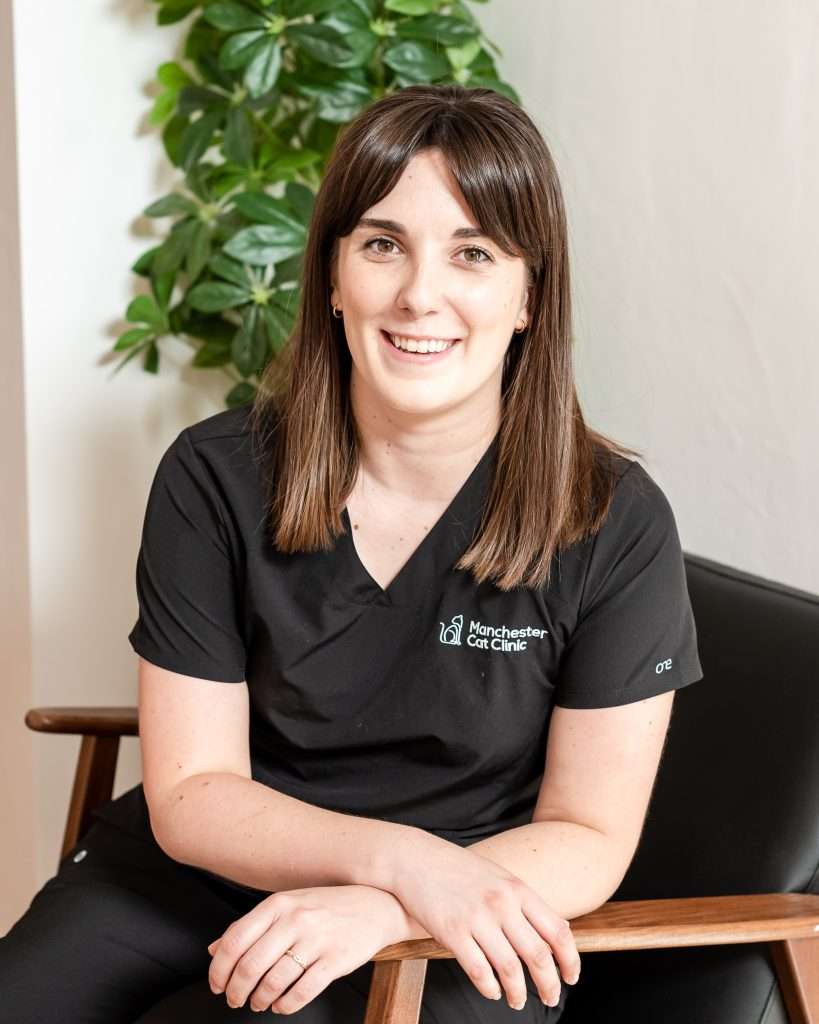
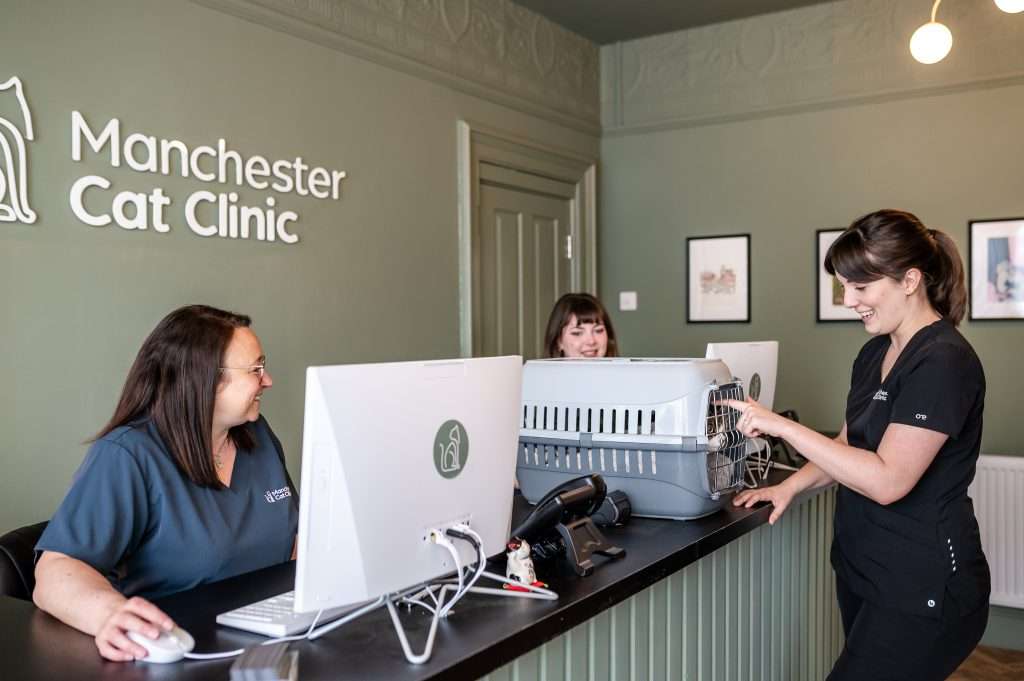
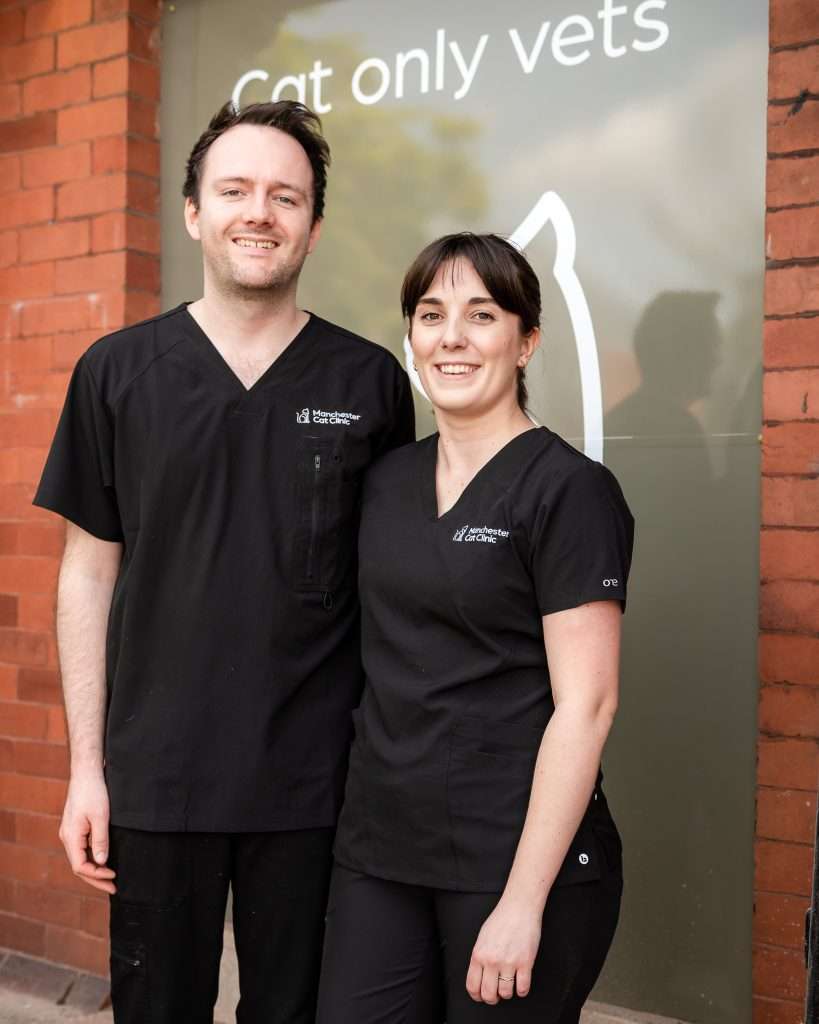
Curious to know More?
Subscribe to our newsletter and never miss our free events, resources, and tips!
-

How To Make Change Easier On Yourself
Continue ReadingRead Time/Watch Time
5 minutes
Who should read this?
Veterinarians, vet nurses, vet techs, employers.
Author(s)
Melanie Barham
Region
Global content
How to make change easier on yourself
Why is change so hard to make happen?
I remember how “easy” it was for me to set my mind to applying o vet school. It was arduous, and hard to study that much, but I did it with relative ease. Other change like career shifts, changing how you work, bringing new ideas to your team…. so much harder.
What gives?
Change science tells us that change is more successful when:
- You are in a supportive environment
- You aren’t the only change agent
- There are others who are going through the same thing
- You have tools and support to succeed
Hm, this does sound like I had the ingredients for success in applying to vet school. Climb Mount Chore Re-evaluation… not so much.
Here are some additional top tips for making change easier on yourself from leading change scientists:
Examine your competing beliefs
Kegan and Lahey described the Immunity to Change process in their book (which I recommend so much I should be their brand ambassador). TL;DR version: you might have a goal or change in mind, but you won’t be successful at making it happen if you have a competing belief.
Willpower alone will not cut it
The theory of willpower posits that, “I want the change to happen, so I’ll make it happen!” But there are very few people in the world who actually achieve all their goals on willpower alone (American Psychological Association, 2021). It is ONE change model, but for some reason, willpower has become an overwhelming, overarching singular theory.
Are you ready to make changes? Is your team or the people around you?
Evaluating readiness for change is part of the principle used in motivational interviewing (underpinned by the transtheoretical model of change… say that 5 times fast!). Turns out, there’s at least 5 steps in being ready to really make a lasting change. So, if you are roadblocked, it could be that you (or your team), are stuck at the beginning phases of change, or haven’t made the leap to the next phase. The good news is that using techniques like coaching can help you understand yourself and what you need to move to the next phase to make change happen.
Evaluate what you are in control of, and what you’re not
Often with change, we expect that we can change everything, or if it doesn’t ALL happen the way we want, it was a failure. The theory of “Circles of Control” is a useful one to help set realistic expectations for success. There’s a small circle that you can control directly. There are areas you can influence, and areas you can have concern for also. Don’t get stuck defining successful change by things you have no control or influence over. Don’t get defeated by setting goals that you have no control over. You can’t control if you’ll get hired, but you can control how many jobs you apply for, how much effort you put in, and how you show up for interviews etc. Own what you can, and let go of the control of the rest.
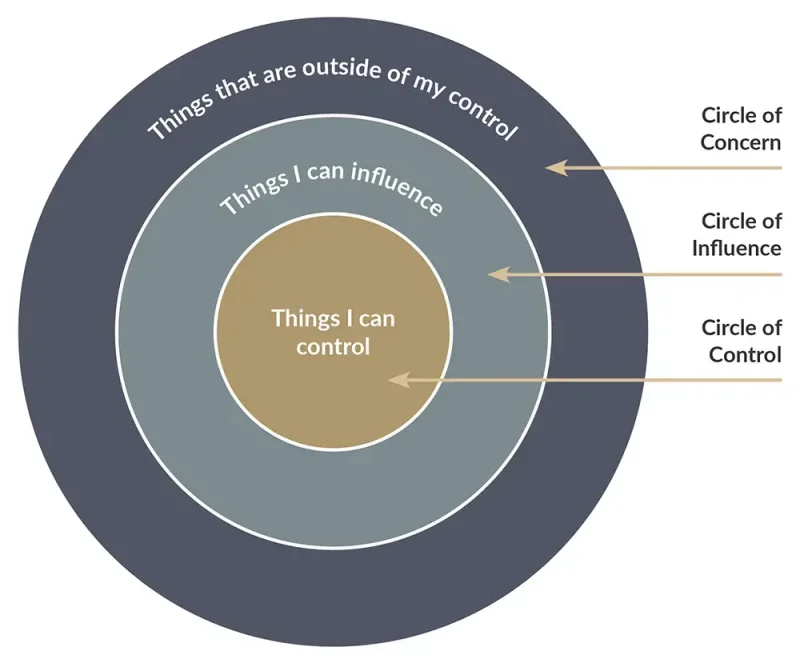
(image credit Positive Psychology, 2023)
Change can feel hard, whether that’s leading the charge for a team, making changes to your career or job, or simply renegotiating your life and work parameters. You don’t have to go it alone.
If you’re looking for support as a leader or an individual, check out group career coaching in the UK and North America. We’ve got all those elements of success included, for good reason. It makes change possible. And we’ve got 10 cohorts of success to show it!

Curious to know More?
Subscribe to our newsletter and never miss our free events, resources, and tips!
-

Mary-Anne Frank – Vet and Co Founder...
Continue ReadingSalary
Tangible - it may take a while to build up but don't forget to pay yourself. There is no upper limit to earnings.
Travel
Occasional conferences
Values
Freedom, Helping others, Creativity
Region
Wherever you choose!
Essential Skills
Creativity, Empathy, Service
Contact
Mary-Anne Frank
Check out our Career Q & A questions below to take a deep dive into this career path. If you’re interested in this type of career but unsure how to take the next step, click below to learn more about our services designed to support you.
I started out in mixed practice and moved to a busy small animal practice to increase my caseload while studying towards a Certificate in Small Animal Medicine. I struggled with my energy levels and was completely wiped out on my days off. It felt like everyone else was managing, why was I unable to cope? After having kids the extra workload intensified this issue and I felt very stuck and unable to figure out a solution.
During Covid I had time to dig deep and figure out what my strengths were. I realised that I needed to do more with my natural creativity and that I wanted to start my own business.
In 2021 I was under huge pressure with an increase in demand from our clients who all got new pets during Covid. Then due to Brexit, the pet travel scheme changed and clients who wanted to travel with their pets needed a 12 page form filled in by their vet. These forms were taking me over an hour and heaven forbid I make a mistake leading to border dramas. OVForm was born because I found filling in the forms very stressful and difficult and it was taking time away from other important jobs. I mentally broke the form down into it’s simplest components and asked my husband if he could create software to edit the pdf documents. We tested the concept and it worked. I now had a solution I could use but we needed a website so that other vets could use it. The website was created by my brother and so OVForm was born and is still run by the 3 of us.
Starting a business is easy, you can learn from other entrepreneurs through courses and mentorship. I had about 50 ideas but picked the one that was easy, profitable and had potential to scale. It was important to me that the people I work with can work in their “flow” and knowing what my strengths and weaknesses were made it easier to choose partners who could fill in the gaps and add technical expertise.
My business model and role are very intentional. I work in practice 2 days a week, I keep bees, I have 2 young children. The business has to fit into about 10 hours a week. If I spent more time on it it would probably get results faster but I pick the one or two tasks that move us forward each week. I ditch, delegate and automate tasks where possible and try not get stuck in the weeds of working in the business itself.
Neurodiversity is the secret sauce that is both the reason why OVForm exists and why it is so good. When we all work in our flow it generates results that exceed expectations, that is for me the best bit!
I usually work 10am – 3pm Monday – Wednesday. I do an “overview” look at all areas then pick a couple of tasks for the week based on what I feel is going to be the most impact. Right now that would be getting 2 more people on board to do customer services and marketing and setting up onboarding emails and videos for a corporate that has just joined.
Someone creative, a problem solver, with genuine desire to serve the people they are selling to.
I am a massive introvert and it took a lot of “inner” work to reprogram mental barriers and limiting beliefs that were holding me back particularly when it came to telling people about my idea. I used Neuro Linguistic Programming for this and it worked very quickly.
- Network with others on the same path
- Find out what you are really good at and make it a part of your business
- Find out who you want to help and find out what they are struggling with
Solopreneurism is overrated, find people with the right skills to work with and your life will be much easier

Curious to know More?
Subscribe to our newsletter and never miss our free events, resources, and tips!
-

When Something’s Got To Change
Continue ReadingRead Time/Watch Time
5 minutes
Who should read this?
Veterinarians, vet nurses, vet techs, employers.
Author(s)
Melanie Barham
Region
Global content
When something's got to change
As a mom, professional, and CEO, I’ve felt like I was on the edge of managing way too much many times. Life can be overwhelming, and I know I’m not alone.
Honestly, the image I have in my head at these times is a recurring one: me riding a large old fashioned bicycle teetering on the edge of a cliff with a very thin track to stay on, and me merrily cycling along in a straw boater hat with a glib smile on my face yelling, “EVERYTHING IS FINE!” Yes, like some kind of Mary Poppins meme!
At those times, I’ve made changes. Big ones. (I’m sure you’re not surprised; that image of me on the brink of madness is pretty graphic!) Maybe you have lives similar times.
Here’s some of the things I have done when I have felt like “things needed to change around here!”
I’ve changed jobs. Got help. Been blunt.
If this has ever been you, or if you’re at that breaking point where you feel stuck and unable to continue, riding a wobbly bicycle on the edge of “this is way too much”…. Stop your scroll.
Come back to me.
You CAN make changes in your career, your life, your work parameters and home parameters.
Is it easy? Not alone, no. Making changes is seriously tough when you’re alone.
Here’s 5 things that have made change easier for me and many other people in their transitions to different life and work parameters:
- Make some breathing room
Take a break, get your spouse to take the kids somewhere else, cancel everything. Get yourself some brain space. Even if it means disappointing someone, they’ll recover. See what you can remove from your schedule. Just go for a 10 minute walk, or do a short journalling or meditation session.
2. Pad yourself with people who care and who can support you in the way you need right now
Know that not everyone is able to support you in the way you need, and that is A-ok. My super blunt and direct friend is NOT who I call when I need a soft hug. It’s ok if you don’t have anyone to do this, or you don’t feel like you have the right people in your corner. This is why coaches, therapists, and other impartial people can be so helpful.
3. Get help- turn towards connection, not away
Reach out to a colleague, mentors, or a coach. And if you feel that you need additional support or aren’t sure if mental health struggles are at play, please pay a visit to your doctor or health provider. It’s not weak to ask for help.
4. Go easy on yourself
Being at the precipice of change is not easy. It’s messy, and we rarely do it perfectly. It’s ok. Be kind; you’re doing your best.
5. Really: please go easy on yourself
Yes I’m saying it twice for those in the back, and because we vet med enthusiasts need this reminder at least twice. Making a change in how you do vet med is not a failure. Changing parameters about your life is not embarrassing; it’s a sign of being reflective and making good choices.
Change is hard, especially when your world is moving so fast you can’t even think straight. This is why VSGD came to be in the first place!
And it’s why we firmly believe in offering support through programs like our group coaching program. We are here for you if you’re ready to make your career more sustainable no matter your role. Employer, parent, student, job seeker, stuck in chaos professional, or just as a person.
If you need support to get to career sustainability and satisfaction, we’re got life boats at the ready! Group coaching sessions are available in North America and the UK and we have individual coaching sessions as well. Check it out below.
It IS important to note that if you are struggling with mental health issues, please visit your doctor or mental health provider. Coaching is not a substitute for medical care or therapy.
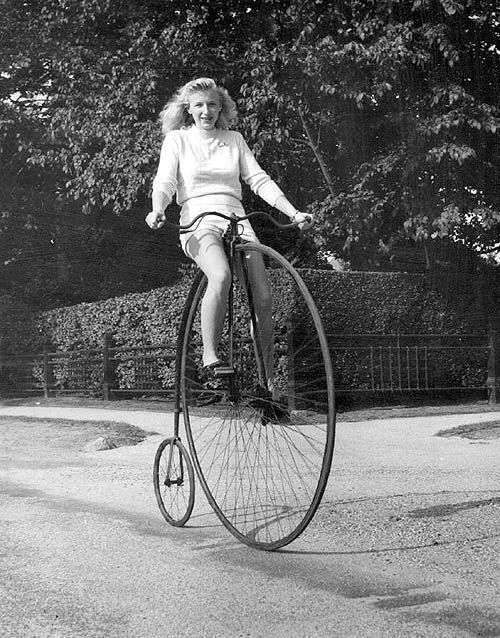
Curious to know More?
Subscribe to our newsletter and never miss our free events, resources, and tips!
-

Are You Slipping Or Sailing?
Continue ReadingRead Time/Watch Time
5 minutes
Who should read this?
Veterinarians, vet nurses, vet techs, employers.
Author(s)
Melanie Barham
Region
Global content
Are you Slipping or Sailing?
Slow your scroll to take a moment to assess
I read an interesting report from the Mom Project that reported on the challenges of summer childcare and logistical juggling for working parents, and particularly moms.
Workplaces in summer are often short staffed, and none more than vet businesses with a shortage of veterinary professionals. Overwork is a common complaint, or coverage and staffing.
I have to ask: are you sailing on calm waters right now?
Or do you feel like you’re floundering around without a life jacket in rough seas?
If you’re sailing on calm seas without a care in the world, I’d love to know what helped make it stress free and smooth for you. Tell me all the things!
If you’re more in the floundering/drowning category, here’s 5 questions to ask yourself to “coach yourself”. If you’re overwhelmed, please just pick one. (Overachievers, I see you… just pick one!)
- What’s one thing that you could do today to help make your day easier right now?
Maybe this is a quick walk, a meditation, or a simple grounding exercise (5 things you can see, 5 things you can touch, 5 things you can hear).
2. What is one item you could offload or say no to right now?
NOT picking up groceries tonight.
3. Who or how can you ask for help with one small thing?
This doesn’t even have to be asking a person for something. Sometimes getting the help you need is ordering dinner in/getting takeout, or doing click and collect groceries.
4. What’s one thing that’s brought you joy in the past 24 hours?
If you’re on the churn of overwhelm and flailing, this is one thing I’d pick to do. For me, one day when I was utterly exhausted and could see no good in the world, I challenged myself to find one joyful thing. It was my little boy smiling at me, and feeling warm sun on my face as I walked to feed my animals. It didn’t stop the surrounding chaos, but it calmed and centred me.
5. If I could imagine myself being past this time, maybe 6 months down the road, what would be different?
This helps us see what is possible, and why this time of struggle is worth going through to get to better times. This question can also clarify what we’ll never do again.
I see you, struggling, flailing, overwhelmed person. I see how hard you’re working, and even if you feel like you’re failing, I guarantee most other people in your life have a different vision of how you’re doing. Take a deep breath. You’ll get through this, and it doesn’t always have to be this way.
If you need support to get to career sustainability and satisfaction, we’re got life boats at the ready! Group coaching sessions are available in North America and the UK and we have individual coaching sessions as well. Check it out below!

Curious to know More?
Subscribe to our newsletter and never miss our free events, resources, and tips!




